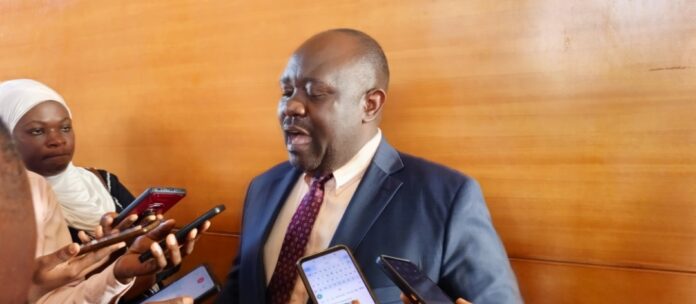ChatGPT said:
Uganda has been re-elected to the African Union Peace and Security Council (PSC) for a second two-year term from 2024-2026.
This announcement came during the 44th Ordinary Session of the AU Executive Council, where Uganda edged out Ethiopia and Eritrea for one of the two available seats from the East African region.
Uganda’s re-election holds significant importance as it marks the country’s fifth time serving on the PSC.
With this two-year term, Uganda’s total tenure on the council will reach 13 years.
Foreign Affairs minister Jeje Odongo expressed gratitude for the overwhelming support and attributed Uganda’s re-election to the strong and exemplary leadership of President Museveni in matters of regional peace and security, as well as his active engagement in Africa.
During Uganda’s current term on the Council, the country has been actively involved in addressing various issues affecting the continent.
Uganda has devoted significant attention to situations in South Sudan, Somalia (ATMIS), the Great Lakes Region, and countries in transition like Sudan.
In May 2023, under the chairmanship of President Museveni, the Council convened a meeting at the level of Heads of State to discuss these matters.
Throughout May 2023, when Uganda chaired the Council, specific attention was given to governance, peace, security, and stability on the continent.
Thematic issues such as terrorism and violent extremism, humanitarian action in Africa, women, peace, and security, as well as the ministerial meeting on financing peace support operations in Africa, were discussed.
As a result of this meeting, the UN Security Council adopted resolution 2719 (2023), authorizing African Union-led Peace Support Operations to access up to 75% of their annual budget from UN assessed contributions.
This resolution aimed to address the challenge of insufficient resources for the security policy of the African Union and other regional mechanisms.
The mandate of 10 members of the African Union Peace and Security Council, elected in February 2022, will conclude on 30th March 2024.
This date will mark the beginning of a new term for those re-elected, including Uganda.
Other members elected to the AU Peace and Security Council include the Democratic Republic of Congo (Central), Equatorial Guinea (Central), Tanzania (Eastern), Egypt (Northern), Angola (Southern), Botswana (Southern), Côte d’Ivoire (Western), Sierra Leone (Western), and The Gambia (Western).

NRM Government Achieves 84% of 2021-2026 Manifesto Pledges, Aims for 100% Completion
Elix News is Uganda’s leading online media that publishes well researched and trending news articles
© Newspaper WordPress Theme by TagDiv


